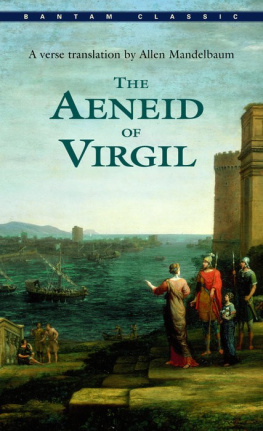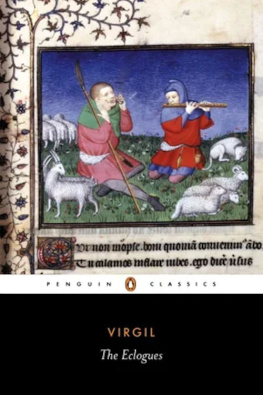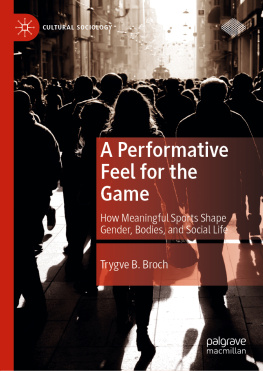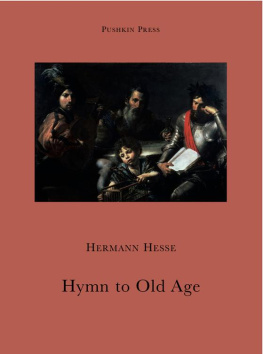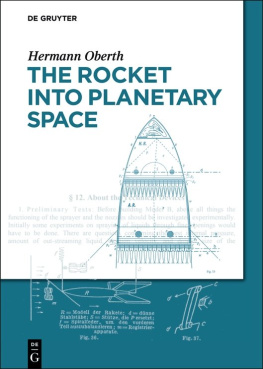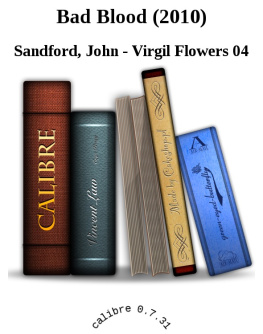Hermann Broch - Death of Virgil
Here you can read online Hermann Broch - Death of Virgil full text of the book (entire story) in english for free. Download pdf and epub, get meaning, cover and reviews about this ebook. year: 1995, publisher: Vintage, genre: Detective and thriller. Description of the work, (preface) as well as reviews are available. Best literature library LitArk.com created for fans of good reading and offers a wide selection of genres:
Romance novel
Science fiction
Adventure
Detective
Science
History
Home and family
Prose
Art
Politics
Computer
Non-fiction
Religion
Business
Children
Humor
Choose a favorite category and find really read worthwhile books. Enjoy immersion in the world of imagination, feel the emotions of the characters or learn something new for yourself, make an fascinating discovery.

- Book:Death of Virgil
- Author:
- Publisher:Vintage
- Genre:
- Year:1995
- Rating:3 / 5
- Favourites:Add to favourites
- Your mark:
- 60
- 1
- 2
- 3
- 4
- 5
Death of Virgil: summary, description and annotation
We offer to read an annotation, description, summary or preface (depends on what the author of the book "Death of Virgil" wrote himself). If you haven't found the necessary information about the book — write in the comments, we will try to find it.
Death of Virgil — read online for free the complete book (whole text) full work
Below is the text of the book, divided by pages. System saving the place of the last page read, allows you to conveniently read the book "Death of Virgil" online for free, without having to search again every time where you left off. Put a bookmark, and you can go to the page where you finished reading at any time.
Font size:
Interval:
Bookmark:
HERMANN BROCH
THE
DEATH
OF
VIRGIL
Translated by
JEAN STARR UNTERMEYER
VINTAGE INTERNATIONAL
VINTAGE BOOKS
A DIVISION OF RANDOM HOUSE, INC.
NEW YORK
F IRST V INTAGE I NTERNATIONAL E DITION , J ANUARY 1995
Copyright 1945 by Pantheon Books Inc. Copyright renewed 1972 by Random House, Inc.
All
Broch, Hermann, 1886-1951.
( Tod des Vergil , English)
The death of Virgil / Hermann Broch ; translated by Jean Starr
Untermeyer. 1st Vintage International ed.
IN MEMORIAM STEPHEN HUDSON
... fato profugus... V ERGIL , Aeneis, I, 2
'... Da jungere dextram,
da, genitor, teque amplexu ne subtrahe nostro.'
Sic memorans, largo fletu simul ora rigabat.
Ter conatus ibi collo dare bracchia circum,
ter frustra comprensa manus effugit imago,
par levibus ventis volucrique simillima somno.
V ERGIL , Aeneis, VI, 697-702
Lo duca ed io per quel cammino ascoso
Entrammo a ritornar nel chiaro mondo;
E, senza cura aver d'alcun riposo,
Salimmo su, ei primo ed io secondo,
Tanto ch'io vidi delle cose belle
Che porta il ciel, per un pertugio tondo;
E quindi uscimmo a riveder le stelle.
D ANTE , Divina Commedia Inferno, XXXIV, 133-139
CONTENTS
EARTHTHE EXPECTATION
AIR THE HOMECOMING
WATER THE ARRIVAL
STEEL-BLUE AND LIGHT, RUFFLED BY A SOFT, SCARCELY perceptible cross-wind, the waves of the Adriatic streamed against the imperial squadron as it steered toward the harbor of Brundisium, the flat hills of the Calabrian coast coming gradually nearer on the left. And here, as the sunny yet deathly loneliness of the sea changed with the peaceful stir of friendly human activity where the channel, softly enhanced by the proximity of human life and human living, was populated by all sorts of craftby some that were also approaching the harbor, by others heading out to sea and by the ubiquitous brown-sailed fishing boats already setting out for the evening catch from the little breakwaters which protected the many villages and settlements along the white-sprayed coasthere the water had become mirror-smooth; mother-of-pearl spread over the open shell of heaven, evening came on, and the pungence of wood fires was carried from the hearths whenever a sound of life, a hammering or a summons, was blown over from the shore.
Of the seven high-built vessels that followed one another, keels in line, only the first and last, both slender rams-prowed pentaremes, belonged to the war-fleet; the remaining five, heavier and more imposing, deccareme and duodeccareme, were of an ornate structure in keeping with the Augustan imperial rank, and the middle one, the most sumptuous, its bronze-mounted bow gilded, gilded the ring-bearing lion's head under the railing, the rigging wound with colors, bore under purple sails, festive and grand, the tent of the Caesar. Yet on the ship that immediately followed was the poet of the Aeneid and death's signet was graved upon his brow.
A prey to seasickness, held taut by the constant threat of its outbreak, he had not dared move the whole day long. Now, however, although bound to the cot which had been set up for him amidships, he became conscious of himself, or rather of his body and the life of his body, which for many years past he had scarcely been able to call his own, as an after-tasting, after-touching memory of the relief which had flowed through him suddenly when the calmer region of the coast had been reached; and this floating, quieted-quieting fatigue might have become an almost perfect boon had not the plaguing cough, unaffected by the strong healing sea air, begun again, accompanied by the usual evening fever and the usual evening anxiety. So he lay there, he the poet of the Aeneid, he Publius Vergilius Maro, he lay there with ebbing consciousness, almost ashamed of his helplessness, at odds with such a fate, and he stared into the pearly roundness of the heavenly bowl: why then had he yielded to the importunity of Augustus? why then had he forsaken Athens? Fled now the hope that the hallowed and serene sky of Homer would favor the completion of the Aeneid, fled every single hope for the boundless new life which was to have begun, the hope for a life free alike of art and poetry, a life dedicated to meditation and study in the city of Plato, fled the hope ever to be allowed to enter the Ionian land, oh, fled the hope for the miracle of knowledge and the healing through knowledge. Why had he renounced it? Willingly? No! It had been like a command of the irrefutable life-forces, those irrefutable forces of fate which never vanished completely, which though they might dive at times into the subterranean, the invisible, the inaudible, were nonetheless omnipresent as the inscrutable threat of powers which man could never avoid, to which he must always submit; it was fate. He had allowed himself to be driven by fate and now fate drove on to the end. Had this not always been the form of his life, had he ever lived otherwise? had the pearly bowl, had the halcyon sea, had the song of the mountains and that which sang painfully in his own breast, had the flute-tone of the god ever meant anything else to him than a circumstance which, like a receptacle of the spheres, was soon to draw him into itself, to bear him into immensity? He had been a peasant from birth, a man who loved the peace of earthly life, one whom a simple secure life in a village community would have fitted, one for whom because of his birth it would have been seemly to be allowed, even to be forced to abide there, but who in conformity with a higher destiny was not allowed to be free from nor free to stay at home; this destiny had pushed him out from the community into the nakedest, direst, most savage loneliness of the human crowd, it had hunted him from the simplicity of his origins, hunted him abroad into the open, to ever-increasing multiplicity, and if thereby something had become greater and broader, it was only the distance from real life, verily it was this distance alone which had grown. Only at the edge of his fields had he walked, only at the edge of his life had he lived. He had become a rover, fleeing death, seeking death, seeking work, fleeing work, a lover and yet at the same time a harassed one, an errant through the passions of the inner life and the passions of the world, a lodger in his own life. And now, almost at the end of his strength, at the end of his search, self-purged and ready to leave, purged to readiness and ready to take upon himself the last loneliness, ready to start on the inner journey back to loneliness, now destiny with all its forces had seized him again, had forbidden him all the simplicity of his beginnings and of the inner life, had deflected his backward journey once more, had turned him back to the evil which had overshadowed all his days, as if it had reserved for him just this sole simplicity, the simplicity of dying. Above him the yards cracked in the ropes and betweenwhiles there was a soft booming in the sailcloth, he heard the slithering foam of the wake and the silver pour that sprayed out each time the oars were lifted, their heavy creak in the oar-locks, and the clapping cut of the water when they dipped in again, he felt the soft even thrust of the ship keeping time to the hundredfold stroke of the oarsmen, he saw the white-surfed coastline slip by and he thought of the chained dumb slave-bodies in the damp-draughty, noisome, roaring hull of the ship. The same dull rumbling silver-sprayed down-beat resounded from the two neighboring ships, from the next in line and the one following, like an echo which repeated itself over all the seas and was answered from all the seas, for so they plied everywhere, laden with people, laden with arms, laden with corn and wheat, laden with marble, with oil, with wines, with spices, with silks, laden with slaves, everywhere this navigation for bartering and bargaining, one of the worst among the many depravities of the world. In these ships, however, the cargo was not so much goods as gluttons, the members of the court: the rear half of the ship up to the stern's end was given over to feeding them, from early morning it reverberated with the sounds of eating and there was always a crowd of guzzlers in the dining-hall, impatient for a triclinium to be vacated, waiting, after a tussle with rivals, to tumble themselves onto it, finally to lie down and do their part by beginning a meal or maybe by starting one all over again. The waiters, light-footed, smart, flashy fellows, not a few pleasure-boys among them, but now sweaty and harried, scarcely had time to catch their breaths, and their forever-smiling head-steward, with the cold look in the corner of his eyes and the politely tip-opened hand, drove them hither and thither, himself rushing up-deck and down-deck because, apart from the progress of the meal, it was necessary at the same time to take care of those whowonderful to relateseemed to be already sated and now were taking their pleasure in other ways, some promenading with hands clasped upon their bellies or over their behinds, some, on the contrary, discoursing with expansive gestures, some dozing on their cots or snoring, their faces covered with their togas, some sitting at the gaming boards, all of whom had to be served and appeased incessantly with tidbits which were passed around the decks on large silver platters and offered to them, keeping in mind a hunger which might assert itself at any moment, keeping in mind a gluttony which was limned in the expression of all of them, ineradicably and unmistakably, as much in the faces of the well-nourished as in those of the haggard, in those of the slack as well as the swift, of the restless and the indolent, in the faces of the sleepers and wakers, sometimes chiselled in, sometimes kneaded in, clearly or cloudily, cruelly or kindly, wolfish, foxish, cattish, parrottish, horsish, sharkish, but always dedicated to a horrible, somehow self-imprisoned lust, insatiably desirous of having, desirous of bargaining for goods, money, place and honors, desirous of the bustling idleness of possession. Everywhere there was someone putting something into his mouth, everywhere smouldered avarice and lust, rootless but ready to devour, all-devouring, their fumes wavered over the deck, carried along on the beat of the oars, inescapable, unavoidable; the whole ship was lapped in a wave of greed. Oh, they deserved to be shown up once for what they were! A song of avarice should be dedicated to them! But what would that accomplish? Nothing availed the poet, he could right no wrongs; he is heeded only if he extols the world, never if he portrays it as it is. Only falsehood wins renown, not understanding! And could one assume that the Aeneid would be vouchsafed another or better influence? Oh yes, people would praise it because as yet everything he had written had been praised, because only the agreeable things would be abstracted from it, and because there was neither danger nor hope that the exhortations would be heeded; ah, he was forbidden either to delude himself or to permit himself to be deluded, only too well he knew the public to which the grave, the knowledge-burdening and actual work of the poet was as negligible as that of the bitterly oppressed and bitterness-filled slave rowers, the public which held the value of one to be equal with that of the other, as tribute due to the usufructuary, to be received and enjoyed as a right! However those who lolled about and gorged themselves were by no means all parasites, even though Augustus was obliged to tolerate so many of this sort in his following, no, quite a few of them had already achieved much that was worthy and useful, but during the idleness of the voyage they had stripped off, with almost luxuriating self-exposure, most of what they customarily were, and the only thing which they had kept intact was their blind arrogance and their unceasing and befogged greed. Below, magnificent, savage, brutal, sub-human, but not less befogged, the tamed rowing-mass worked together, stroke after stroke. Down there they did not understand him and paid no attention to him, these up here maintained that they revered him, yes, they even believed it; but, be that as it may, whether they presumed to cherish his work by falsely pretending to be connoisseurs, or whether, no less falsely, they paid homage to him as Caesar's friend, it was of no moment, he Publius Vergilius Maro had nothing in common with them although fate had driven him into their midst, they nauseated him and if the land-breeze, in an advance-salute to the sunset, had not started to blow the stench of the meal and the kitchen away from the ship, seasickness would have befallen him again. He assured himself that the chest with the manuscript of the Aeneid stood undisturbed near him, and, blinking into the deeply-sinking western day-star, he pulled his robe up to his chin; he was cold.
Next pageFont size:
Interval:
Bookmark:
Similar books «Death of Virgil»
Look at similar books to Death of Virgil. We have selected literature similar in name and meaning in the hope of providing readers with more options to find new, interesting, not yet read works.
Discussion, reviews of the book Death of Virgil and just readers' own opinions. Leave your comments, write what you think about the work, its meaning or the main characters. Specify what exactly you liked and what you didn't like, and why you think so.



